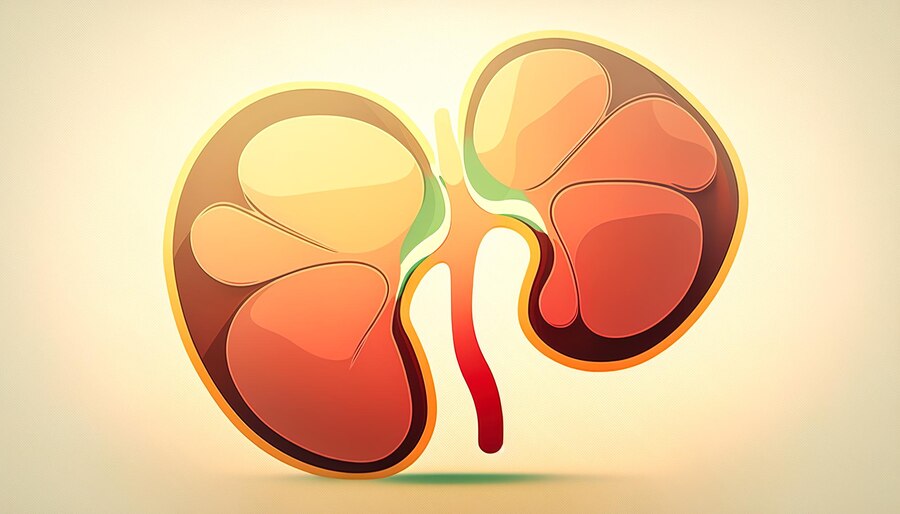Don’t Let Chronic Kidney Disease Hold You Back A Guide to Understanding and Thriving . Chronic Kidney Disease Management Kidney Health Tips . Chronic kidney disease (CKD) can sound daunting, but with knowledge and the right approach, you can effectively manage it and live a full, rewarding life. This blog post equips you with clear, easy-to-understand information about CKD, exploring its causes, symptoms, and most importantly, strategies for living well with it.
Understanding Chronic Kidney Disease (CKD)
Imagine your kidneys as remarkable organs acting as your body’s internal filtration system. They continuously work to eliminate waste products and excess fluid from your blood, maintaining a healthy balance in your blood chemistry and ensuring proper bodily function. In CKD, this filtration process deteriorates gradually over time.
CKD has five stages, with stage 1 being the mildest and stage 5 representing kidney failure. It’s important to remember that many people with CKD, especially in the early stages, may not experience any noticeable symptoms. This underscores the importance of regular check-ups and screenings for early detection and management.
What Causes Chronic Kidney Disease (CKD)?
Several underlying conditions can contribute to CKD. Here’s a look at some of the most common culprits:
- Diabetes: High blood sugar levels can damage the tiny filters within your kidneys.
- High Blood Pressure: Uncontrolled high blood pressure over time can strain your kidneys, hindering their ability to function properly.
- Autoimmune Diseases: Certain autoimmune diseases, like lupus, can attack the kidneys.
- Polycystic Kidney Disease (PKD): This genetic condition involves cyst development in the kidneys, affecting their function.
Signs and Symptoms of Chronic Kidney Disease (CKD)
As mentioned earlier, CKD often progresses silently in the initial stages. However, as the condition worsens, you might experience some of these symptoms:
- Increased fatigue
- Changes in urination: This could include urinating more often at night, blood in the urine, or decreased urine output.
- Swelling in your ankles, feet, or hands
- Loss of appetite
- Itchy and dry skin
- Difficulty concentrating
- High blood pressure that’s hard to control
Real-life Example: Sarah, a vibrant 52-year-old, had been experiencing fatigue for months. Initially, she thought it was due to her busy work schedule. However, during a routine checkup, her doctor noticed abnormalities in her blood tests suggestive of CKD. Further investigations confirmed early-stage CKD, likely caused by undiagnosed high blood pressure. With lifestyle changes, medication, and regular monitoring, Sarah was able to manage her CKD effectively and prevent its progression.
This example highlights the importance of early detection and intervention. If you experience any of the above symptoms, don’t hesitate to consult your doctor.
Living Well with Chronic Kidney Disease (CKD)
A CKD diagnosis doesn’t have to mean limitations. By taking charge of your health and following your doctor’s recommendations, you can live a long and fulfilling life. Here are some key strategies for managing CKD:
- Diet: A balanced diet that’s low in sodium, phosphorus, and protein can significantly slow the progression of CKD. Your doctor or a registered dietitian can guide you on creating a personalized meal plan.
- Medication: Medications can help control blood pressure, manage blood sugar levels (if you have diabetes), and address other complications associated with CKD.
- Exercise: Regular physical activity, even moderate walks, can improve your overall health and well-being.
- Smoking Cessation: Smoking can worsen kidney function. Quitting smoking is one of the best things you can do for your health.
- Fluid Management: Depending on the stage of your CKD, your doctor might advise you to limit your fluid intake.
Additional Tips for Thriving with Chronic Kidney Disease (CKD)
- Find Strength in Support Groups: Connecting with others who understand what you’re going through can be incredibly helpful. Support groups can provide emotional support, share experiences and tips, and help you feel less alone.
- Open Communication is Key: Don’t hesitate to ask your doctor questions. Open communication is crucial. Ask questions about your condition, treatment options, and any concerns you might have.
- Focus on the Positive: A chronic illness can be challenging, but it doesn’t define you. Focus on the things you can control and maintain a positive outlook.
Chronic kidney disease is a manageable condition. By working with your healthcare team, adopting healthy lifestyle habits, and staying informed, you can take control of your CKD and live happily and healthy.
Chronic Kidney Disease Management Kidney Health Tips
